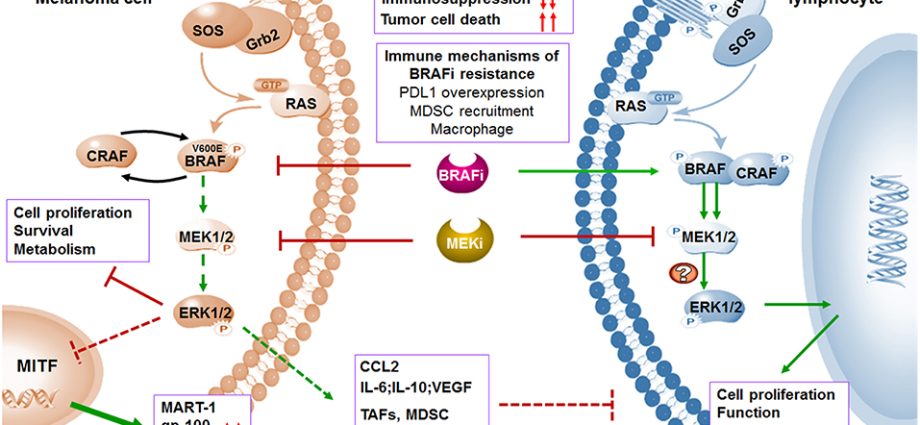In the treatment of advanced melanoma, a breakthrough was a new type of immunotherapy, which is also used in Poland on a selected group of patients, experts informed during a press conference in Warsaw.
Head of the clinic of soft tissue, bone and melanoma cancers at the Oncology Center in Warsaw, prof. Piotr Rutkowski said that until recently, patients with advanced melanoma could only survive for half a year. Thanks to the new immunotherapy, which unblocks the PD-1 programmed death receptor and activates the immune system to fight cancer cells, half of the patients survive 24 months. Some of them live much longer.
Drugs that block the PD-1 receptor have been registered in the European Union, but are not reimbursed in Poland yet. However, they are available in most European countries, incl. in Slovakia, Sweden, Czech Republic, Finland, Slovenia, Bulgaria, Ireland, Spain, Denmark, Luxembourg, Austria, Greece and Great Britain. Outside the EU, these drugs are also reimbursed in the United States, Canada, Israel and Switzerland.
“We are waiting for the reimbursement of these preparations, because without them it is difficult to talk about modern treatment of advanced metastatic melanoma, giving some patients great hope for life extension and improvement of its quality” – emphasized Prof. Rutkowski. These drugs generally do not cause any more serious side effects.
So far, the Agency for Health Technology Assessment and Tariffs has issued a positive opinion on the reimbursement of PD-1 blocking drugs under the drug program along with other therapies approved for the treatment of this disease.
Preparations unblocking the PD-1 receptor are, however, used in our country, so far on a selected group of patients. Prof. Rutkowski said that in the case of melanoma, they have so far been used in over 200 patients, 100 of whom are still alive. They were treated as part of clinical trials or the so-called an Early Access Therapy Program funded by the drug manufacturer.
“This program, which started in March 2015, enrolled 61 patients with advanced metastatic melanoma. From this group, 30 patients are still treated ”- said Prof. Rutkowski.
National consultant in the field of clinical oncology prof. Maciej Krzakowski, head of the lung cancer clinic of the Oncology Center in Warsaw, said that drugs that unblock the PD-1 receptor in the United States and the European Union have also been approved for the treatment of lung cancer. In Poland, they are currently available only as part of clinical trials.
“Until now, drugs of this type have been used only as the next (stage III) treatment, when other treatment options have already been exhausted. Now their use in the first-line treatment is being considered “- said Prof. Krzakowski. This changes the treatment strategy for diseases such as advanced melanoma (stage IV or inoperable, stage III).
Prof. Krzakowski explained that many cancers avoid the attack of the patient’s immune cells. They inhibit the action of the PD-1 receptor on the surface of these cells (lymphocytes). They use a mechanism that the body uses to prevent the immune system from acting too aggressively (which protects against autoimmune diseases).
“Next-generation drugs unblock PD-1 receptors, activating the immune system to better recognize and fight cancer cells,” said a national consultant.
Experts admitted during a meeting with journalists that there is no method yet to determine which patient will benefit from this type of immunotherapy. In the case of melanoma, patients with high expression of PD-1 receptors generally respond better. In December 2015, one of such drugs was also approved for the treatment of kidney cancer in the United States.
Prof. Krzakowski said that a good solution would be financing this type of therapy by the state budget when it proves effective in a given patient. In addition, there is also a chance that after some time such treatment could be discontinued in at least some patients, when the immune system would be able to control the development of the neoplastic disease itself.
The American Society of Clinical Oncology (ASCO) in February 2016 recognized immunotherapy (unlocking the PD-1 receptor) as the greatest achievement in oncology in 2015. This was reported in the 11th annual report “Clinical Cancer Advances 2016”. Immunotherapy will be one of the main topics of AZSCO’s annual congress, which will begin in Chicago at the end of May.










